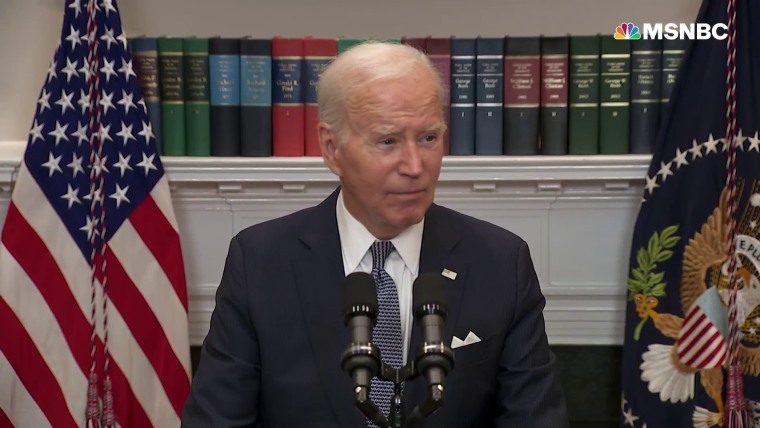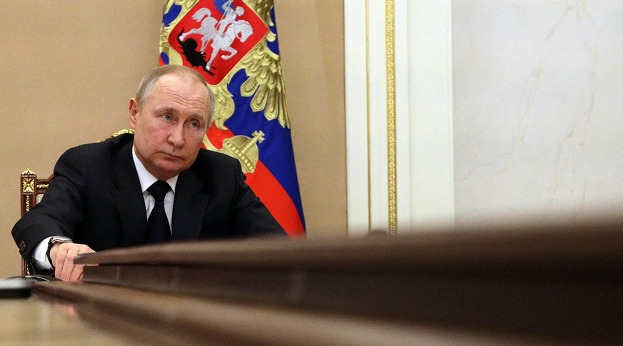Discover the Global Views on U.S. President Joe Biden and the United States
In a recent survey conducted by the Pew Research Center, U.S. President Joe Biden receives mostly positive reviews from publics around the world. With a median of 54% expressing confidence in Biden across 23 countries, it’s clear that his presidency is making an impact on the global stage.
Positive Views of the United States
Not only is Biden receiving positive ratings, but overall views of the United States are largely favorable as well. A median of 59% give the U.S. a favorable rating, with countries like Poland, Israel, South Korea, Nigeria, Japan, and Kenya showing particularly high levels of favorability. It’s worth noting that Hungary is the only country surveyed where fewer than half see the U.S. favorably.
Complex Perceptions of U.S. Foreign Policy
Public opinion about U.S. foreign policy is often complex, with people recognizing both positive and negative aspects of American power. While a median of 82% believe that the U.S. interferes in the affairs of other countries, most also believe that the U.S. contributes to peace and stability worldwide. This highlights the nuanced views people have when it comes to America’s actions on the global stage.
Consideration of Other Countries’ Interests
International public opinion is divided on how much the U.S. considers the interests of other countries when making foreign policy decisions. However, in many nations surveyed, the share of the public that believes the U.S. does consider other countries is higher than ever before. This suggests a potential shift in how the U.S. is perceived in terms of its global decision-making.
American Soft Power and Economic Power
The survey also explores other aspects of American power, including elements of U.S. soft power. America’s technology, universities, military, and entertainment are all seen as top-notch when compared to other wealthy nations. However, perceptions of the U.S. standard of living receive mixed reviews.
When it comes to economic power, perceptions have increased in several countries over the past few years, with respondents tending to view the U.S. as the leading economic power rather than China. However, in some European countries and Australia, China is considered the top global economy.
Insights from a Comprehensive Survey
These findings come from a comprehensive Pew Research Center survey conducted among 27,285 people in 23 countries, including key U.S. allies. The survey covers various aspects of America’s overall image, ratings of President Biden, views of U.S. foreign policy, American soft power, and American economic power.
Overall, the survey provides valuable insights into how the world perceives the United States and its current president. It highlights the complex nature of public opinion and sheds light on the evolving dynamics of global politics.Discover the Global Perception of the United States: Biden vs. Trump
Did you know that 64% of Indians give President Biden positive marks, compared to the 56% who had confidence in Trump? And that’s not all. In a recent survey conducted across 23 countries, it was found that the U.S. takes into account the interests of other nations a great deal or fair amount, according to 49% of respondents.
But what’s even more interesting is the rise in the number of people who believe the U.S. listens to countries like theirs. In fact, in 12 countries, this belief is at its highest point ever recorded. Key NATO allies such as Poland, Germany, and the United Kingdom have seen a significant increase in the share of their population who think the U.S. considers their interests.
However, the perception of America’s role on the world stage is complex. While many believe that the U.S. interferes in the affairs of other countries, an equal number also believe that it contributes to peace and stability globally. This dual perspective is particularly prevalent in Greece, Hungary, and Italy.
When it comes to American soft power, the survey reveals interesting insights. Respondents generally view the U.S. as politically stable, on par with other affluent nations. However, opinions differ when it comes to tolerance and danger. Australians, for example, see the U.S. as less tolerant and more dangerous compared to other wealthy countries.
On the positive side, American tech, entertainment, colleges, and military are rated above average by other countries. This highlights the influence and appeal of American culture and innovation worldwide.
So, if you’re curious about how the world perceives the United States and the impact of different administrations, this survey provides valuable insights. It’s a fascinating look into global opinions and the complex dynamics of international relations.Discover How People Around the World Perceive the United States
Have you ever wondered how people in other countries view the United States? A recent survey conducted by Pew Research Center provides fascinating insights into global perceptions of America. From opinions on American entertainment to economic power, this study sheds light on how the U.S. is seen by people around the world.
Mixed Views on American Standard of Living
While many respondents believe that America’s technology, entertainment, universities, and military are the best or above average compared to other affluent nations, opinions on the standard of living vary. Only 51% of respondents think the U.S. has the best or better than average standard of living. Interestingly, Americans themselves are less likely to praise their own standard of living, with only 44% believing it is the best or above average.
Younger Adults Embrace American Popular Culture
Younger adults, aged 18 to 39, are particularly fond of American movies, music, and television. In 18 nations, they are more likely than older adults to rate American entertainment as the best or above average. For example, 84% of Greeks under 40 believe American entertainment is the best, compared to 62% of those over 40. However, despite their positive views on American culture, younger adults express greater concerns about safety in the U.S.
Perceptions of Safety Vary Among Age Groups
In 12 nations, younger adults are more likely to consider the U.S. a more dangerous place to live than other wealthy nations. For instance, 61% of 18- to 39-year-olds in the Netherlands believe the U.S. is more dangerous, while only 34% of those over 40 agree. This contrast in views highlights the differing perspectives on safety between generations.
Shifting Perceptions of Global Economic Power
The survey also reveals changing perceptions of global economic power. In several countries, people are more likely to name the U.S. as the world’s leading economic power, surpassing China. Overall, 41% of respondents across 23 nations believe the U.S. holds this position, while 33% name China. This shift in perception has been particularly significant in Germany, Sweden, Japan, France, Canada, and the Netherlands.
Positive Views on American Investment
When it comes to American investment in their countries, respondents in middle-income nations generally view it positively. Across eight nations, a median of 68% believe U.S. investment has benefited their economies a great deal or a fair amount. Nigeria, Kenya, India, and Mexico stand out with over 70% holding this view. However, Argentina is an exception, with a majority believing U.S. investment has been detrimental.
Mexico’s Changing Attitudes
Mexico’s attitudes toward the U.S. have experienced a significant turnaround. During Trump’s presidency, ratings for the U.S. declined in many nations, including Mexico. However, with the election of President Biden, confidence in the U.S. has rebounded. While Biden’s ratings in Mexico are not exceptionally high, they are considerably higher than Trump’s were. Overall, ratings for the U.S. in Mexico have returned to levels similar to those during Obama’s second term.
Differing Views in Central Europe
Central European countries like Poland and Hungary have been in the spotlight due to the rise of right-wing populist parties. The survey reveals differing views of the U.S. in these countries. While both Poland and Hungary have governments controlled by right-wing populist parties, their perceptions of the U.S. differ. This highlights the complexity of opinions within the region.
Conclusion
The Pew Research Center survey provides valuable insights into how people around the world perceive the United States. From opinions on American entertainment to economic power and political leadership, these findings offer a comprehensive understanding of global views on America. Whether you’re interested in cultural influence or international relations, this study is a must-read for anyone curious about the United States’ standing in the world.Public Opinion on the U.S. in Hungary and Poland: A Tale of Two Countries
While both Hungary and Poland have faced tensions with the European Union and a decline in their democratic quality, their public opinions about international affairs, particularly the United States, couldn’t be more different.
Poland’s Positive Attitude towards the U.S.
Over the past two decades, Poles have generally held favorable attitudes towards the U.S., but these sentiments have intensified since Russia’s invasion of Ukraine. In fact, in the latest survey, Poles consistently rank at or near the top when it comes to expressing positive views about the U.S. Their support for the U.S. has grown stronger in the face of geopolitical challenges.
Hungary’s Negative Perception of the U.S.
In stark contrast, Hungarians consistently rank at the bottom in terms of their views on the U.S. President Joe Biden receives his lowest rating from Hungary, and it is the only country where less than half of the population holds a favorable opinion of the U.S. Furthermore, Hungarians are the least likely to believe that the U.S. considers their interests when making foreign policy decisions. They also hold the belief that the U.S. does not contribute to global peace and stability. These negative views are particularly prevalent among supporters of Prime Minister Viktor Orbán’s Fidesz party.
Understanding the Divide
The contrasting attitudes towards the U.S. in Hungary and Poland shed light on the complex dynamics at play in these two countries. While Poland’s positive perception of the U.S. has strengthened in response to external threats, Hungary’s negative perception may be influenced by domestic political factors. These findings highlight the importance of considering public opinion when analyzing international relations and the impact of political leadership on shaping attitudes towards global powers.
Conclusion
The divergent public opinions on the U.S. in Hungary and Poland reveal a fascinating contrast between the two countries. While Poles hold a generally positive view of the U.S., Hungarians harbor more negative sentiments. These insights provide valuable context for understanding the dynamics of international relations and the role of domestic politics in shaping public opinion.
Global Perception of Biden and the United States: A Remarkably Positive Outlook
In the wake of the 2020 United States presidential election, the world has witnessed a significant shift in the global perception of both President Joe Biden and the United States as a whole. After four years of tumultuous international relations under the previous administration, the new leadership has brought about a remarkably positive outlook among nations across the globe.
One of the key factors contributing to this positive shift is President Biden’s commitment to multilateralism and international cooperation. Unlike his predecessor, who often adopted an isolationist approach, Biden has actively sought to rebuild alliances and strengthen partnerships with countries around the world. His decision to rejoin the Paris Agreement on climate change, for instance, has been widely applauded as a significant step towards global environmental sustainability. This renewed commitment to multilateralism has not only restored faith in the United States as a reliable partner but has also reestablished its leadership role on the global stage.
Furthermore, President Biden’s emphasis on diplomacy and dialogue has resonated positively with nations worldwide. His administration has prioritized engaging in constructive conversations with adversaries and allies alike, aiming to find common ground and resolve conflicts through peaceful means. This approach has been particularly evident in the United States’ renewed efforts to revive the Iran nuclear deal and its commitment to finding a peaceful resolution to the Israeli-Palestinian conflict. Such diplomatic initiatives have been met with widespread appreciation and have helped restore the United States’ reputation as a mediator and peacemaker.
Another significant aspect of the positive global perception of President Biden and the United States is his administration’s commitment to human rights and democratic values. Biden has made it clear that human rights will be at the forefront of his foreign policy agenda, signaling a departure from the previous administration’s approach. This renewed focus on human rights has resonated with nations that have long criticized the United States for its perceived disregard for international norms. By championing democratic values and human rights, President Biden has reestablished the United States as a beacon of hope and inspiration for those fighting for freedom and justice around the world.
Moreover, President Biden’s handling of the COVID-19 pandemic has also contributed to the positive global perception of the United States. His administration’s swift and efficient vaccine rollout, coupled with its commitment to global vaccine distribution, has been widely praised. The United States’ return to the World Health Organization and its financial contributions to global vaccination efforts have demonstrated a renewed commitment to global health and solidarity. This proactive approach has not only saved lives but has also restored faith in the United States’ ability to lead in times of crisis.
While it is important to acknowledge that challenges and disagreements will inevitably arise in international relations, the overwhelmingly positive global perception of President Biden and the United States is a testament to the transformative power of leadership. Through his commitment to multilateralism, diplomacy, human rights, and global health, President Biden has successfully revitalized the United States’ standing in the world. As nations look towards the future with renewed optimism, it is clear that the Biden administration has ushered in a new era of international cooperation and collaboration, fostering a remarkably positive outlook for both the United States and the world at large.









